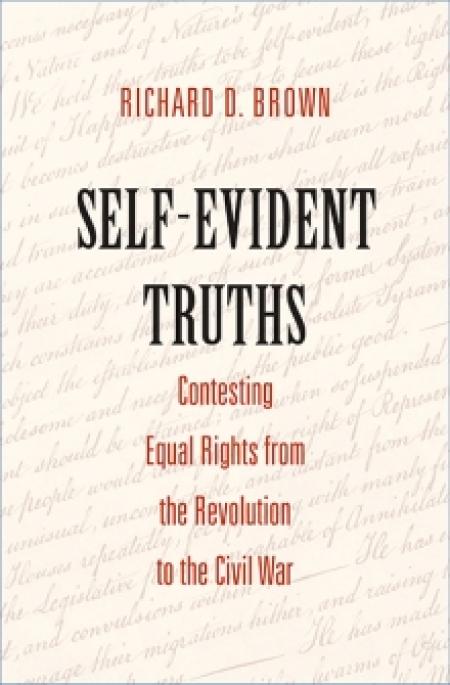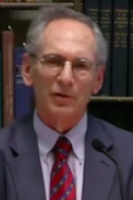
American Antiquarian Society
185 Salisbury Street
Worcester, MA 01609
United States
Despite our country’s founding statement that “all men are created equal,” the early Republic struggled with social inequality. Although Americans paid homage to the ideal of equal rights, this ideal came up against entrenched social and political practices. In this talk based upon his latest book, Self-Evident Truths: Contesting Equal Rights from the Revolution to the Civil War, Brown will discuss how the ideal was tested in struggles over race and ethnicity, religious freedom, gender and social class, voting rights and citizenship. He shows how high principles fared in criminal trials and divorce cases when minorities, women, and people from different social classes faced judgment. His talk explores the ways revolutionary political ideas penetrated popular thinking and everyday practice from the Revolution through the Civil War.

Richard D. Brown is the Board of Trustees Distinguished Professor of History, Emeritus, at the University of Connecticut. He has taught as a Fulbright lecturer in France and at Oberlin College. A past president of the Society of Historians of the Early American Republic and the New England Historical Association, Brown has held fellowships from, among others, the Guggenheim Foundation and the National Endowment for the Humanities. Most recently he is the author of Self-Evident Truths: Contesting Equal Rights from the Revolution to the Civil War (Yale University Press, 2017). He is also the author of Knowledge is Power: The Diffusion of Information in Early America, 1700-1865 (Oxford Univ. Press, 1989) and The Strength of a People: The Idea of an Informed Citizenry in America, 1650-1870 (University of North Carolina Press, 1996). With Irene Quenzler Brown he is the co-author of The Hanging of Ephraim Wheeler: A Story of Rape, Incest, and Justice in Early America (Harvard University Press, 2003). Brown was elected a member of AAS in 1981 and currently serves on the Society’s Council (board of trustees.)

